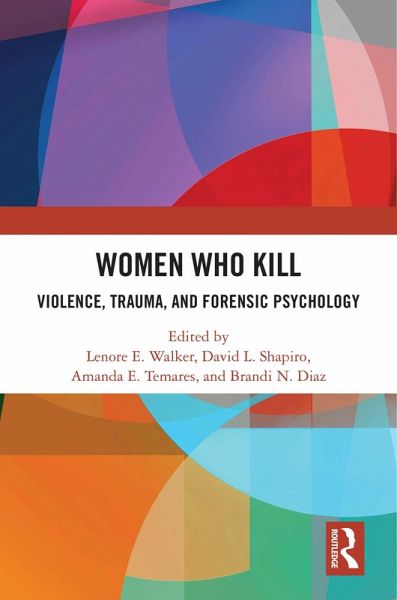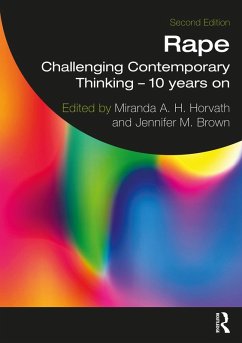
Women Who Kill (eBook, ePUB)
Violence, Trauma, and Forensic Psychology
Redaktion: Walker, Lenore; Diaz, Brandi; Temares, Amanda; Shapiro, David
Versandkostenfrei!
Sofort per Download lieferbar
52,95 €
inkl. MwSt.
Weitere Ausgaben:

PAYBACK Punkte
26 °P sammeln!
Women rarely kill. How and why a woman can be driven to lethal action is often highly complex and misunderstood. Many of these women who act lethally are driven to such a point as a last resort following prolonged experiences of child abuse and/or domestic violence. This book offers insights into these women, detailing their motivations, their patterns of violence, and how they can be aided through psychological evaluation and proper expert testimony. The chapters in this volume also include discussions of women who did not kill but were punished as if they had. This collection of writings see...
Women rarely kill. How and why a woman can be driven to lethal action is often highly complex and misunderstood. Many of these women who act lethally are driven to such a point as a last resort following prolonged experiences of child abuse and/or domestic violence. This book offers insights into these women, detailing their motivations, their patterns of violence, and how they can be aided through psychological evaluation and proper expert testimony. The chapters in this volume also include discussions of women who did not kill but were punished as if they had. This collection of writings seeks to fill the gaps in research on women who kill.
This book is beneficial to students and researchers of Psychology including Forensic Psychology. It will further aid the field of criminal justice as well as policymakers such that clinicians can provide an enhanced understanding on various psychological and demographic factors which contribute to situations where battered women reach a point where the only option to ensure survival is lethal self-defense. Finally, this book offers clarity as it points out the areas in which the legal system has failed these women.
The chapters in this book were originally published as a special issue of Journal of Aggression, Maltreatment & Trauma.
This book is beneficial to students and researchers of Psychology including Forensic Psychology. It will further aid the field of criminal justice as well as policymakers such that clinicians can provide an enhanced understanding on various psychological and demographic factors which contribute to situations where battered women reach a point where the only option to ensure survival is lethal self-defense. Finally, this book offers clarity as it points out the areas in which the legal system has failed these women.
The chapters in this book were originally published as a special issue of Journal of Aggression, Maltreatment & Trauma.
Dieser Download kann aus rechtlichen Gründen nur mit Rechnungsadresse in A, B, BG, CY, CZ, D, DK, EW, E, FIN, F, GR, HR, H, IRL, I, LT, L, LR, M, NL, PL, P, R, S, SLO, SK ausgeliefert werden.













